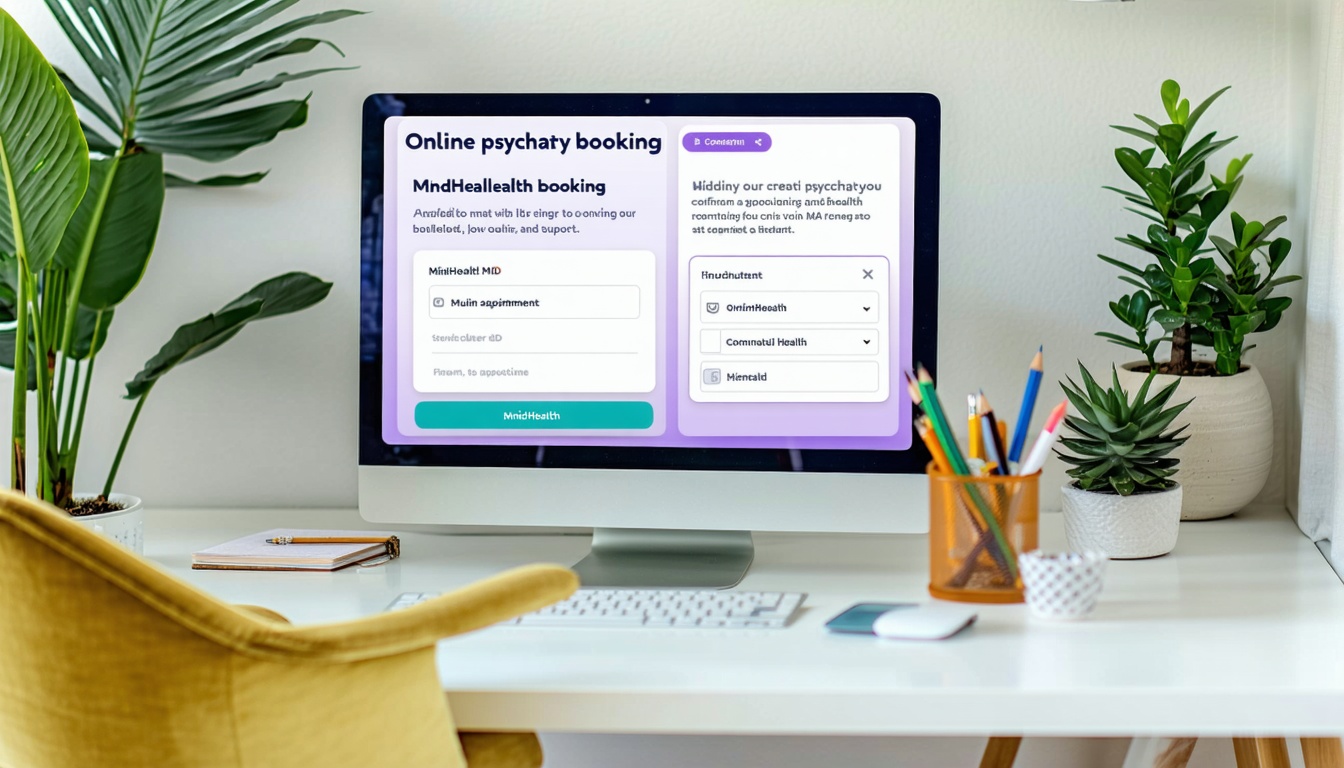Explore medication assisted treatment
Medication assisted treatment is a powerful approach to recovery that combines FDA-approved medications and counseling to relieve withdrawal discomfort, reduce cravings, and reshape unhealthy behaviors. If you or a loved one is struggling with substance use, you might wonder how medication assisted treatment helps you restore balance. Think of it as a solid anchor that keeps you steady so you can focus on meaningful life changes.
Evidence suggests MAT is especially effective for opioid and alcohol addictions because it targets both the physical and psychological components of substance use. According to the American Addiction Centers, MAT programs combine “pharmacological treatment with behavioral treatment” to address each patient’s unique needs [1]. This integrated model is built on decades of research showing that combining supportive medication with talk therapy, family counseling, and social support can significantly improve treatment outcomes. By blocking the rewarding sensations of drugs and minimizing cravings, you’ll have more mental and emotional space to rebuild healthier routines.
Recognize the benefits of MAT
It’s natural to be skeptical. You might ask, “Do I really want to rely on another medication?” But medication assisted treatment isn’t about trading one dependency for another. Instead, it focuses on improving your day-to-day functioning so you can make steady progress in recovery. A partial opioid agonist like buprenorphine can ease distressing withdrawal symptoms, while an opioid antagonist such as naltrexone blocks the “high” from opioids and alcohol. Research has found that individuals on methadone or buprenorphine maintenance are 50 percent less likely to die of overdose compared to people without treatment [2].
In addition to lowering overdose risks, MAT often leads to better engagement in counseling, fewer relapses, and reduced HIV risk behaviors. Patients who stick with MAT typically see an improvement in overall functional outcomes, such as the ability to keep a job, repair relationships, and stay physically healthy. The Sunrise Treatment Center notes that patient adherence to medication significantly impacts the overall success of treatment [3]. If you remain committed to your prescribed regimen and attend regular counseling sessions, you’ll set yourself up for long-term success.
Discover the MindHealth MD approach
You deserve care that’s grounded in science but delivered with empathy, and that’s exactly what MindHealth MD offers. We believe that you can reclaim control of your life through dedicated professional support that addresses your physical, mental, and social needs. Our customized strategies might incorporate medication assisted treatment, telehealth psychiatry, or transcranial magnetic stimulation (TMS) depending on your unique situation.
-
Evidence-based strategies
We stay current with evolving research, so you can trust that we use the most up-to-date methods to guide you. Medication assisted treatment is a hallmark of our approach. Whether you are dealing with opioid use disorder, alcohol misuse, or another substance-related challenge, we tailor your MAT plan to your particular circumstances. In many cases, this plan includes daily or weekly check-ins, counseling sessions, and ongoing medication management [4]. -
Support beyond the medications
At MindHealth MD, we see each person as more than a patient or a diagnosis. We explore lifestyle factors, mental health challenges, and home or family dynamics that might affect your recovery journey. Alongside MAT, you’ll have options for talk therapy, digital check-ins, and support from professionals who want to see you flourish. When you have concerns or questions, our virtual psychiatry session can connect you instantly with a mental health expert.
Benefit from telehealth psychiatry
Maybe you live far from a clinic, or you just want the convenience of having appointments in the comfort of your home. Telehealth psychiatry bridges that gap, enabling you to reach your treatment team wherever you are. MindHealth MD leverages secure video calls, online scheduling tools, and digital follow-up messages so you never feel alone in your journey.
-
Convenience and flexibility
Managing obligations becomes a lot easier when you can attend a short term psychiatry session online. Perhaps you’re juggling a full-time job, family duties, or you don’t have reliable transportation. With telehealth, these barriers become less of an issue. You simply need a private spot and a decent internet connection to join your session. -
Personalized care at your fingertips
Telehealth also ensures you stay in close contact with your providers, making it more likely you’ll stick to your medication schedule and quickly address any side effects. If you need to adjust doses, you don’t have to wait weeks for an in-person appointment. Instead, you can schedule an immediate psychiatry appointment. Rapid changes in mental health can have serious impacts, so access to prompt virtual care can truly make a difference in your recovery.
Experience TMS for better outcomes
Transcranial magnetic stimulation (TMS) is a noninvasive therapy that uses magnetic fields to stimulate specific areas of your brain linked to mood regulation and depression. If you’ve struggled with treatment-resistant depression or other mood disorders, TMS could be a game-changer. Studies indicate that combining TMS with medication assisted treatment and counseling can yield even stronger results for some patients.
TMS is often recommended for individuals who haven’t responded well to antidepressants or who prefer a therapy that targets the brain without systemic medication side effects. During a TMS session, you remain awake and alert, with pulses delivered to pinpointed areas of your brain to help ease depressive symptoms. Here at MindHealth MD, you can schedule tms treatment or learn more about tms therapy for depression if you’re curious about whether it fits your needs.
Plan for comprehensive care
Think of your recovery plan as a multi-layered approach that addresses your immediate concerns while setting the stage for long-term wellbeing. Our medication assisted treatment services often work best when combined with therapy, family intervention, and routine health checkups. Whether your focus is on opioid, alcohol, or other substance challenges, we’ll talk you through every step.
-
Tailored assessments
The first step often involves an evaluation to determine which medication and program level is right for you. A physician will do a thorough physical and mental health assessment, and we’ll discuss your substance use history and personal goals. If opioid addiction is your main concern, read about our mat for opioid addiction services. If alcohol misuse is the bigger problem, check out mat for alcohol dependency. -
Ongoing monitoring
Once you begin your MAT regimen, expect ongoing adjustments to keep you stable. While some individuals quickly transition from detox to maintenance, others might take more time to find a dosage that minimizes cravings. Your therapy team will keep close tabs on your progress, updating your treatments as needed. You can also explore additional support like a co occurring disorders treatment program if mental health conditions overlap with substance use.
Address stigma and barriers
Unfortunately, inaccurate beliefs can discourage people from seeking medication assisted treatment. Perhaps you’ve heard the misconception that MAT simply replaces one addiction with another. In reality, these FDA-approved medications work by stabilizing brain chemistry, reducing the urge to use illicit substances, and allowing you to focus on rebuilding a healthy life. Even the U.S. Department of Health and Human Services has referred to MAT as a lifesaving measure, urging providers to offer it as an integral part of recovery programs.
There’s also the issue of access. Although many insurance plans cover MAT thanks to laws like the 2008 Mental Health Parity and Addiction Equity Act, some individuals worry about cost or limited providers in their area. MindHealth MD addresses these concerns through insurance accepted psychiatry options and telehealth services, which let you receive high-quality care wherever you live. If you do not carry insurance or prefer a different route, we have self pay psychiatry session choices to suit your situation.
Consider a proactive approach
Substance use disorders often develop gradually, and so does change. That’s why a proactive mindset can make a big difference. If there’s even a small sign that you or a loved one may be veering toward dangerous patterns of use, explore your treatment options right away. You don’t have to wait for a crisis. Early intervention often shortens the duration and severity of addiction by tackling the problem before it escalates.
Some folks also underestimate the importance of mental health follow-ups. Maintaining continuous care helps you catch relapses early, refine the dosage of your medication, or pivot to a new treatment if needed. If your symptoms have been resistant to multiple approaches, you might benefit from treatment resistant depression care for a fresh start.
Embrace the whole-patient approach
Many people describe addiction as all-encompassing because it touches every aspect of life. That’s why medication alone, while vital, isn’t a magic fix. You also need support, whether that’s therapy sessions, involvement in a 12-step group, or family counseling. When you connect with our providers, expect a “whole-patient” approach that covers your mental, emotional, social, and even legal needs if applicable. The American Addiction Centers emphasizes how MAT includes not just medication management, but also vocational, family, and legal support [1].
Coordinating all these components can feel overwhelming, but you don’t have to do it by yourself. We’ll help you schedule therapy, recommend local support groups, or talk to your family about ways they can be part of your recovery. A stable home environment significantly boosts your chances of success. If you’re worried about urgent mental health issues, a psychiatric stabilization care program can keep you safe while you recalibrate.
Spotlight on MindHealth MD’s TMS services
You’ve probably heard of TMS as a breakthrough option for severe or treatment-resistant depression, but it’s worth noting how TMS complements your medication assisted treatment plan. Think of each piece of your therapy puzzle as having a distinct function: MAT manages your physical cravings, talk therapy addresses the emotional roots of addiction, and TMS modulates the brain circuits that might be contributing to low mood or anxiety.
If you often experience co-occurring depression, a TMS session can spark improvements that allow you to better engage in your MAT program. According to some studies, TMS has a track record of lowering depression symptoms in people who haven’t improved with standard medications. At MindHealth MD, we handle all aspects of your TMS and can also guide you in exploring transcranial magnetic stimulation providers if you’re curious about alternative scheduling or specialized equipment. When you bundle TMS with structured medication assisted treatment, you amplify the positive effects on your overall recovery.
Manage your journey with EEG mapping
When it comes to tailoring your plan, technology can offer valuable insights. For instance, electroencephalogram (EEG) mapping looks at the electrical activity in your brain. By doing an eeg brain mapping test, we can spot patterns that might correlate with depression, anxiety, or other mental health conditions. This information can help your psychiatrist or therapist refine your medication regimen and therapy methods.
EEG studies can also be done to examine how your brain reacts over time, offering clues about whether an intervention like TMS is making a noticeable difference. If you want deeper data-informed knowledge on your condition, an eeg diagnostic for mental health can guide your long-term strategy. Combining advanced diagnostics with empathetic care is a hallmark of MindHealth MD, supporting you with evidence-based solutions.
Prepare for lasting change
Real transformation is a gradual process that requires consistency and patience. Medication assisted treatment is most successful when individuals commit to check-ins and stay connected with their care team. For many patients, the journey has distinct phases:
- Medical detox: Some people start with a detox phase, removing harmful substances from the body under medical supervision.
- Rehabilitative phase: After detox, you’ll start to build new habits and coping strategies. Therapy will play a major role here, alongside your medication.
- Maintenance: As you reclaim more independence, you’ll shift to longer intervals between appointments, but you’ll still need regular follow-ups to make sure everything stays on track.
If you’re worried about losing momentum after you leave an inpatient facility or structured outpatient program, you can stay engaged through post discharge psychiatry care. Booking an online psychiatry booking is another way to maintain close contact so you don’t fall through the cracks.
Help for co-occurring disorders
It’s common for individuals with substance use disorders to also grapple with depression, anxiety, or PTSD. That’s why offering integrated services for mental health concerns is crucial. If you’re dealing with multiple diagnoses, you might seek out a dual diagnosis psychiatric program, which tailors therapy to address both conditions at once. Studies reveal that when co-occurring disorders remain untreated, the risk of relapse goes up.
A specialized approach ensures that your medication assisted treatment plan is seamlessly coordinated with therapy for conditions like anxiety or PTSD. You can also look into dedicated appointments, such as a book anxiety treatment or ptsd psychiatric care, to layer additional support on top of your existing plan.
Empower yourself through knowledge
Part of the anxiety that comes with seeking treatment can stem from the unknown. What will happen during the first session? Will you mesh well with your psychiatrist? We encourage you to ask questions freely. The more you learn about the benefits of medication assisted treatment, the better equipped you’ll be to commit to it. By gathering as much information as possible, you reduce the fear around new treatments and boost your confidence in your ability to recover.
Our team is here to guide you through tricky insurance processes or to explain why certain medications might work better for you. If you prefer an in-person consult, we can arrange an adult psychiatry intake appointment. If you have a younger family member who needs support, you can ask about child psychiatry immediate access. Whichever format works best for you, we’ll help you feel comfortable from day one.
See real improvements
Although every person’s experience is unique, many notice specific improvements once they commit to medication assisted treatment:
- Reduced cravings: As you stabilize on the right medication, you won’t feel the same intense urge to use.
- Better mood control: Coupling MAT with therapies like TMS can significantly elevate your sense of wellbeing.
- Improved daily functioning: Being more present at work or able to nurture personal relationships is a hallmark of successful recovery.
- Increased social support: Engaging in therapy sessions, local support groups, or online communities offers a critical layer of human connection.
You might start noticing some benefits within days, while others will emerge over weeks or months. The steady growth you experience can inspire you to maintain a healthier lifestyle.
Frequently asked questions
-
What is medication assisted treatment exactly?
Medication assisted treatment is a method that uses FDA-approved medications, counseling, and behavioral therapy to help people recover from substance use disorders. The medicines address physical dependency and withdrawal, while counseling tackles the emotional and behavioral aspects of addiction. -
Is MAT only for opioids?
No. While MAT is highly recognized for opioid use disorder, it’s also considered effective for alcohol dependency. In fact, the FDA has approved medications like buprenorphine, methadone, and naltrexone for opioid issues, but naltrexone and other drugs can also support those dealing with alcohol misuse. If you want to see how this applies to specific concerns, explore mat for alcohol dependency or mat for opioid addiction. -
Will I be swapping one addiction for another?
Not at all. MAT medications work differently than illicit drugs. Medications such as buprenorphine or methadone help stabilize brain chemistry without giving a euphoric high, allowing you to function better and focus on recovery goals. You’ll taper or maintain your medication under medical supervision, ensuring you don’t develop a new harmful dependency. -
How much does MAT cost and is it covered by insurance?
Costs vary depending on your insurance plan and treatment specifics. Many insurance plans are required by law to cover substance use disorder treatment at similar levels to other medical conditions. That’s why MindHealth MD offers in network psychiatry care and insurance accepted psychiatry. We also have self pay psychiatry session if you prefer that option. -
Do I have to combine MAT with counseling?
Yes, it’s strongly recommended. Research shows combining medication with counseling and behavioral therapies yields far better results than using either form of treatment alone. These therapies help you learn coping strategies, work through underlying trauma, and alter unhelpful behaviors.
Take the next step
Medication assisted treatment could be the turning point you or a loved one needs to reclaim a sense of normalcy and hope. With a well-rounded approach that may incorporate MAT, telehealth psychiatry, TMS, and continuous social support, our team at MindHealth MD is here to guide you through every stage of recovery. Nobody should have to face substance use alone, and you do have options to regain control of your life.
If you’re ready to begin, you can book psychiatric appointment or request a telepsychiatry appointment today. Our mission is simple: to offer comprehensive, compassionate treatment that addresses both the mind and body, supporting you until you’re back on your feet. Whether you need help with opioid challenges, alcohol misuse, or co-occurring mental health conditions, we’re prepared to meet you where you are. Let’s keep the conversation going, explore your possibilities, and work together so that medication assisted treatment becomes the catalyst for lasting change. Your journey toward better health can start right now.








